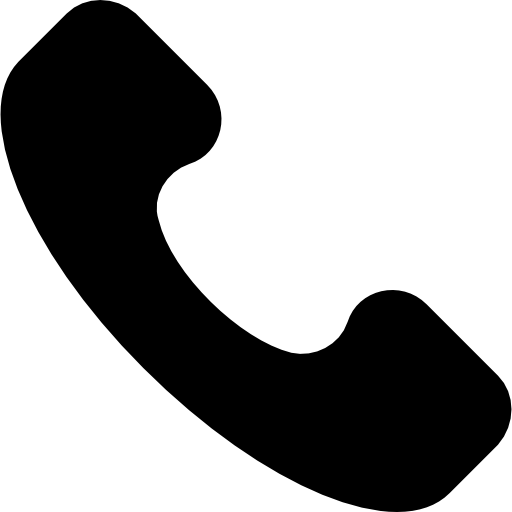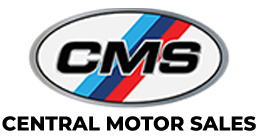32 Franklin Street Wrentham, MA 02093
The Ultimate Checklist for Buying a Used Car
Understanding Your Needs
Understanding your needs is the first and most crucial step in buying a used car, whether you're an individual buyer or setting up a used car dealership business. This step involves identifying what you require in a vehicle to meet your specific needs.
Are you looking for a family car with plenty of space for kids and cargo? Or perhaps you need a small, fuel-efficient car for daily commuting? Maybe you need a robust pickup truck for work-related tasks. Understanding these requirements will help narrow down your choices significantly.
Your preferences also play a significant role. Do you prefer automatic or manual transmission? Are there certain brands or models you favor over others? What about the age and mileage of the car?
Safety features are another vital factor to consider. Does the car have airbags, anti-lock brakes, or stability control? These features can significantly impact your safety on the road.
Lastly, consider your budget. It's important to choose a car that you can afford not only to buy but also to maintain. Remember, owning a car comes with additional costs like insurance, maintenance, and fuel.
By understanding your needs and preferences, you can make a more informed decision and choose a car that will serve you well. This approach is especially important for those starting a used car dealership business, as understanding customer needs and preferences can greatly affect the success of your business.
Setting a Budget
The next step in our checklist for buying a used car, or starting a used car dealership business, is setting a budget. It's crucial to know how much you can afford to spend before you start looking at cars.
When setting your budget, consider not only the initial cost of the car but also the ongoing costs. These include maintenance, repairs, insurance, and fuel. Some cars may be cheaper to buy but more expensive to maintain, so it's important to factor these costs into your budget.
If you're financing the car, think about how much you can afford in monthly payments. Remember, it's generally recommended to spend no more than 20% of your monthly income on car payments.
Also, keep in mind that used cars can often require more maintenance and repairs than new cars. It's a good idea to set aside some money for unexpected costs.
For those starting a used car dealership business, the budget will also include business-related costs like licensing, inventory, premises rental, and staff salaries. It's important to have a clear financial plan to ensure the sustainability and profitability of your business.
Remember, a well-planned budget is a key element in making a wise purchase decision. It helps you avoid overspending and keeps you focused on cars within your price range.
Researching Models and Prices
The next phase in our checklist for launching a used car dealership business, or buying a used car, involves conducting thorough research. This step is crucial because it helps you make an informed decision.
Start by researching the models that fit your needs and budget. Look for reviews and ratings online. Consider factors like reliability, maintenance costs, fuel efficiency, and resale value. Consumer Reports and J.D. Power are excellent resources for this kind of information.
Next, check the market prices for the models you're interested in. Websites like Kelley Blue Book, Edmunds, and AutoTrader can provide valuable data on the average price range for specific models based on their age, condition, mileage, and location.
If you're starting a used car dealership business, your research should also include understanding your target market and competition. Know what types of cars are in demand in your area. Understand what other dealerships are offering and how you can differentiate your business.
Once you've done your homework, you'll be better equipped to negotiate prices and recognize a good deal when you see one. Remember, knowledge is power in the used car market. The more informed you are, the better decisions you'll make.
Where to Buy
Once you have identified your needs, set a budget, and done your research, the next step in our guide to buying a used car or starting a used car dealership business is to inspect the vehicle thoroughly.
When buying a used car, it's crucial not to judge a book by its cover. A car might look perfect on the outside but have hidden issues that could cause problems down the line. Always ask to see the car's service history. This will show you if the car has been regularly maintained and if there have been any major repairs or accidents.
Physically inspect the car during daylight where imperfections are easier to spot. Check for signs of rust, damage, or mismatched paint which could indicate past accidents. Look at the tires to see if they're worn evenly, which could signal alignment or suspension issues.
The interior of the car also deserves attention. Check the upholstery for tears or stains. Test all the lights, wipers, air conditioning, heater, windows, and locks.
Starting the engine and taking the car for a test drive is also essential. Listen for any unusual sounds and observe how the car performs in different situations.
For those launching a used car dealership business, inspections should be a standard part of your purchasing process. Offering well-inspected and reliable vehicles will build trust with your customers and protect your business reputation.
Remember, it's always a good idea to have a trusted mechanic inspect the car before finalizing the purchase. They can spot potential issues that you might miss and help you avoid costly mistakes.
Checking Vehicle History
Once you have identified your needs, set a budget, and done your research, the next step in our guide to buying a used car or starting a used car dealership business is to inspect the vehicle thoroughly.
When buying a used car, it's crucial not to judge a book by its cover. A car might look perfect on the outside but have hidden issues that could cause problems down the line. Always ask to see the car's service history. This will show you if the car has been regularly maintained and if there have been any major repairs or accidents.
Inspecting the Car
Physically inspect the car during daylight where imperfections are easier to spot. Check for signs of rust, damage, or mismatched paint which could indicate past accidents. Look at the tires to see if they're worn evenly, which could signal alignment or suspension issues.
The interior of the car also deserves attention. Check the upholstery for tears or stains. Test all the lights, wipers, air conditioning, heater, windows, and locks.
Starting the engine and taking the car for a test drive is also essential. Listen for any unusual sounds and observe how the car performs in different situations.
For those launching a used car dealership business, inspections should be a standard part of your purchasing process. Offering well-inspected and reliable vehicles will build trust with your customers and protect your business reputation.
Remember, it's always a good idea to have a trusted mechanic inspect the car before finalizing the purchase. They can spot potential issues that you might miss and help you avoid costly mistakes.
Negotiating the Price
After the inspection comes the negotiation phase. This is a critical step, whether you're buying a used car or running a dealership. It's here where your research and preparation can pay off.
When buying a used car, don't be afraid to negotiate on the price. Dealers often have a higher asking price than what they're willing to accept because they expect some haggling. Use the market data you've gathered on the average price for the model, taking into account its condition and mileage, as a benchmark for the negotiation.
Start by making an offer lower than what you're willing to pay, but within a reasonable range based on your research. Be prepared to justify your offer with the data you've collected. If the dealer doesn't accept your first offer, don't be discouraged. Negotiation is a back-and-forth process.
For those running a dealership, you'll need to negotiate when acquiring inventory. The goal is to buy low so you can sell at a profit while still offering a good deal to your customers.
Finally, whether you're buying a car or running a dealership, never rush the negotiation. Take your time, stand firm, and be prepared to walk away if the deal isn't right. The key is to make a decision that aligns with your budget and meets your needs without compromising on quality or value.
Finalizing the Paperwork
Closing the deal is the final step in buying a used car or adding to your dealership's inventory.
If you're buying a used car, once you've agreed on a price, it's time to finalize the paperwork. Ensure that the seller provides all necessary documents such as the vehicle's title, service records, and any warranties if applicable. It's also typically the buyer's responsibility to register the vehicle with the state's Department of Motor Vehicles and pay any associated fees.
In most cases, you'll need to secure financing before you can finalize the purchase. If you haven't already arranged this, now is the time to do so. Shop around for the best interest rates and loan terms. Some dealerships offer in-house financing, but it's still wise to compare their terms with those of other lenders.
For those running a dealership, closing the deal involves similar steps but on a larger scale. You'll need to handle the paperwork for each vehicle you acquire, ensure each car is properly registered, and manage the financial aspect of the business. This may include securing loans or other forms of financing to increase your inventory.
Once the deal is closed, the last thing to do is drive away in your new-to-you car or add the new acquisition to your sales lot. Congratulations! You've successfully navigated the process of buying a used car or expanding your used car dealership business.
Remember, whether you're a buyer or a dealer, the key to success in the used car market is knowledge. Stay informed about market trends, do your research, and never rush into a deal. With these tips, you'll be well on your way to getting a great deal on your next used car purchase or making your dealership a success.
Maintaining Your Used Car or Dealership Inventory
Once you've purchased your used car or added new vehicles to your dealership inventory, the journey doesn't end there. Proper maintenance is key to ensuring longevity and reliability, whether it's for your personal ride or for cars in your dealership.
As a used car owner, regular servicing is crucial to keep the vehicle in good running condition. Stick to the recommended service schedule found in the vehicle's owner manual. This typically includes regular oil changes, checking fluid levels, tire rotations, and brake inspections. Always address any unusual noises or changes in the car's performance immediately to prevent small issues from becoming costly repairs.
For those running a used car dealership, maintenance of your inventory is equally important. Regularly inspect and service the cars in your lot to keep them in sellable condition. This not only helps to maintain the value of your inventory but also builds trust with your customers. No one wants to buy a used car only to have it break down shortly after the purchase.
Additionally, consider offering post-purchase services to your customers such as warranties or maintenance packages. This not only provides an additional stream of revenue but also shows your commitment to customer satisfaction.
In both cases, maintaining a good relationship with a trusted mechanic or service center can be immensely beneficial. They can provide valuable advice, help catch potential issues early, and ensure your car or your inventory stays in the best possible condition.
Conclusion
In conclusion, whether you're purchasing a used car for personal use or running a thriving dealership, the process requires research, strategic negotiation, and diligent maintenance. But with the right approach and resources, it can result in a reliable vehicle or a profitable business.
If you're looking to add a high-quality used car to your life or need assistance in managing your dealership inventory, remember that Central Motor Sales is always here to help. Our team of experts is dedicated to providing exceptional service and ensuring that every customer leaves satisfied.
For more information on our services or to schedule an appointment, please don't hesitate to contact us at 508-384-3737. At Central Motor Sales, we're committed to helping you navigate the used car market with ease and confidence. We look forward to serving you soon!


